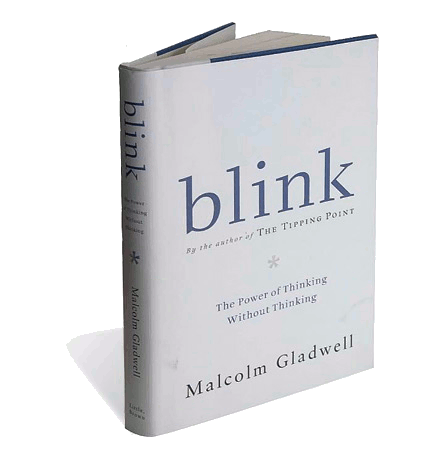
Are you going to finish reading this post?
I happen to know that you've already decided. You decided during the first sentence. (You also may or may not know that I can tell from Google Analytics if you actually follow through with your decision.)
I know this because Malcolm Gladwell explained in Blink that the value of knee-jerk decisions made by experts is about the same as deeply researched and well thought out decisions made by most anyone.
But there's a catch. Turns out that "Snap judgments and rapid cognition take place behind a closed door" (51). In other words, we can make reasonably informed decisions in an instant, but we're not so good at explaining why they're good decisions.
The issue is further complicated by our poor decisions. This has everything to do with racial prejudices, marketing and shopping, choosing a mate, understanding the enemy in a battle, and deciding whether or not to shoot an intruder in the dark who may turn out to be your son stopping by to surprise you with a visit.
The good news is this: we can train ourselves to make wise decisions. We can precondition our physical and emotional surroundings to help us and others control our environments and make the automatic, background thinking work in our favor.
Gladwell is not without his critics. But at its worst, this is an idea that would be a really good one if it were true. So how do you make assumptions work in your favor? Read the book and find out.
Disclosure of Material Connection: I have not received any compensation for writing this post. I have no material connection to the brands, products, or services that I have mentioned. I am disclosing this in accordance with the Federal Trade Commission’s 16 CFR, Part 255: "Guides Concerning the Use of Endorsements and Testimonials in Advertising."
Question: Did you make it all the way down here to the question? (Most won't.)